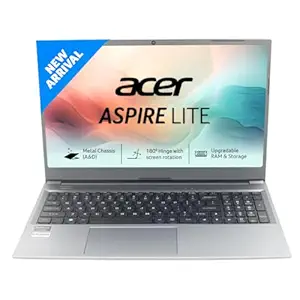How to Remove Stickers from a Laptop: A Complete Guide

Why Remove Stickers from Your Laptop?
Many people stick decals, logos, or fun designs on their laptops to express their personality. Over time, stickers may:
Peel off unevenly, leaving a mess.
Collect dust, dirt, or grime.
Make the laptop look outdated or unprofessional.
Lower the resale value of the device.
Whether you want to clean up your laptop’s look or prepare it for resale, learning how to remove laptop stickers without causing damage is essential.
What You’ll Need to Remove Stickers from a Laptop
Before diving into the removal process, gather these simple tools and items:
Soft microfiber cloth (to clean the surface).
Plastic scraper or old credit card (to lift stubborn stickers).
Isopropyl alcohol or adhesive remover (to dissolve glue).
Hairdryer (to loosen adhesive with heat).
Warm soapy water (for gentle cleaning).
Cotton swabs (for small, detailed areas).
Patience (removing stickers carefully takes time).
Pro Tip:
Avoid using sharp objects like knives or metal scrapers, as they can scratch the surface of your laptop.
Step-by-Step Guide to Remove Stickers from a Laptop
Follow these steps carefully to remove stickers without damaging your device:
1. Assess the Sticker and Laptop Surface
Determine the type of sticker (paper, vinyl, or laminated).
Check the laptop’s material (plastic, metal, or glass).
Avoid using harsh chemicals on sensitive finishes like matte or soft-touch surfaces.
2. Heat the Sticker with a Hairdryer
Using a hairdryer is a simple trick to loosen adhesive:
Set the hairdryer to low or medium heat.
Hold it about 6 inches away from the sticker.
Heat the sticker for 30-60 seconds to soften the glue.
This step makes peeling easier and reduces the risk of tearing.
3. Peel the Sticker Gently
Start at one corner of the sticker.
Use your fingers, a plastic scraper, or an old credit card to lift the edge.
Slowly pull the sticker off at a 45-degree angle.
If the sticker tears, reheat it and continue peeling.
4. Remove Adhesive Residue
After peeling, adhesive residue may remain. Here’s how to clean it:
Dampen a cloth with isopropyl alcohol or adhesive remover.
Rub the sticky area gently in circular motions.
For stubborn spots, use a cotton swab dipped in the solution.
5. Clean the Surface
Once all stickers and residue are gone, clean the surface:
Wipe the area with warm soapy water to remove any chemical traces.
Dry with a soft microfiber cloth to restore shine.
Tips for Removing Stubborn Stickers
Some stickers can be more challenging to remove. Here are extra tips to tackle them:
Use Oil-Based Solutions
Olive oil or coconut oil can break down adhesive.
Apply a small amount with a cloth and rub gently.
Try Vinegar
White vinegar is a natural adhesive remover.
Mix equal parts vinegar and water, then wipe the area.
Avoid Harsh Abrasives
Do not use steel wool, sandpaper, or abrasive cleaners, as they can scratch or damage the laptop.
How to Remove Stickers from Laptop Screens
Laptop screens are more delicate than their outer surfaces. Follow these steps for safe sticker removal:
Use minimal heat (hairdryer on the lowest setting).
Peel the sticker gently without applying pressure to the screen.
Clean any residue with a soft cloth dampened with water or screen-safe cleaner.
Benefits of Removing Stickers from a Laptop
Professional Appearance: A clean laptop looks sleek and professional.
Improved Hygiene: Stickers attract dirt and germs over time.
Easier Resale: Buyers prefer laptops without sticky residue.
A Fresh Start: Removing stickers gives your laptop a new look.
Common Mistakes to Avoid
While removing stickers from your laptop, avoid these pitfalls:
Using too much force: This can scratch the surface or damage the laptop.
Applying harsh chemicals: Certain cleaners can discolor or corrode materials.
Skipping residue removal: Leftover glue can attract more dirt.
Ignoring manufacturer guidelines: Some laptop brands advise against using specific products.
How to Prevent Sticker Damage in the Future
If you love personalizing your laptop with stickers, here are tips to avoid future headaches:
Use removable or repositionable stickers designed for laptops.
Apply stickers to a clear protective case instead of the laptop itself.
Avoid placing stickers on vents, ports, or the screen.
FAQs about Removing Stickers from a Laptop
1. Can I use acetone to remove stickers?
Acetone is too harsh for most laptops and can damage the finish. Stick to isopropyl alcohol or adhesive removers.
2. How do I remove old, hardened stickers?
Heat the sticker with a hairdryer and use a plastic scraper to lift it. Apply adhesive remover for stubborn residue.
3. Will removing stickers void my laptop’s warranty?
No, removing stickers will not void your warranty unless the sticker is a manufacturer seal.
4. Can I use water to remove stickers?
Water can loosen some stickers, but it’s not effective for adhesive residue. Use isopropyl alcohol for better results.
5. How do I clean up after removing stickers?
Wipe the area with warm soapy water, then dry with a microfiber cloth.
Final Thoughts
Learning how to remove stickers from a laptop can save you from unsightly residue and potential damage. By following these simple steps and tips, you can make your laptop look as good as new. Always be patient and gentle during the process, and choose the right tools for your laptop’s material.
Have you tried removing stickers from your laptop? Share your experience and tips in the comments below
United States






